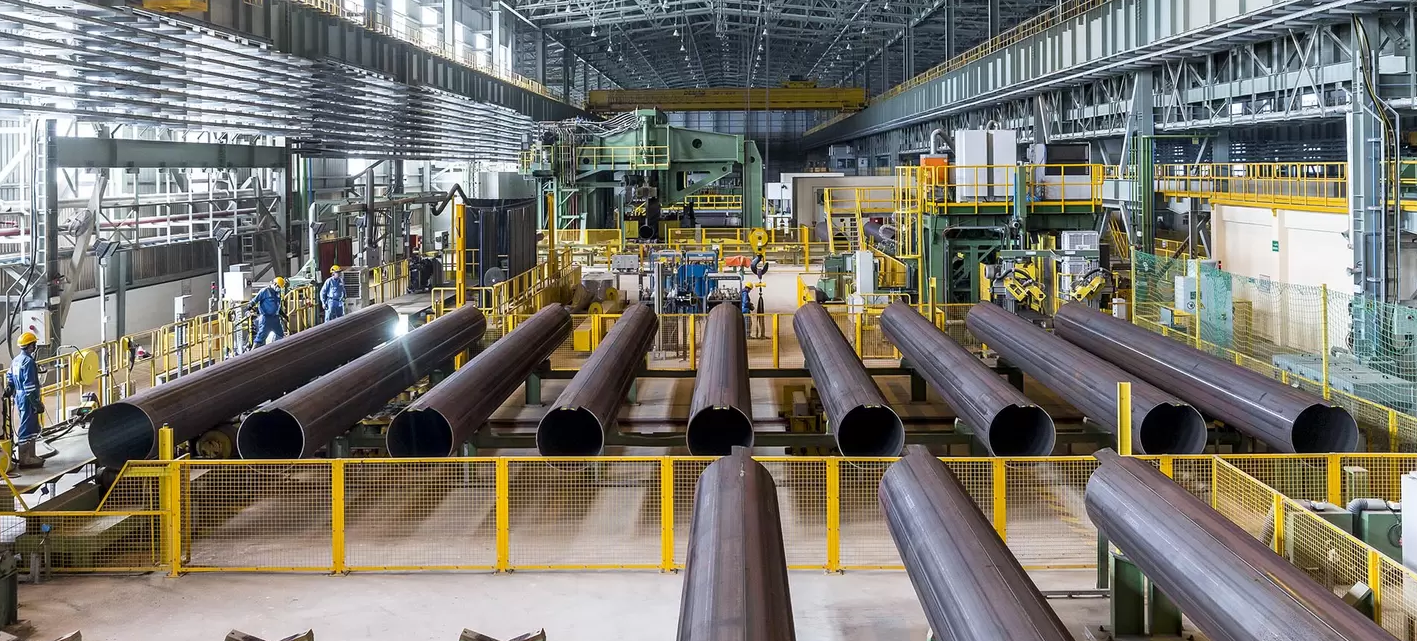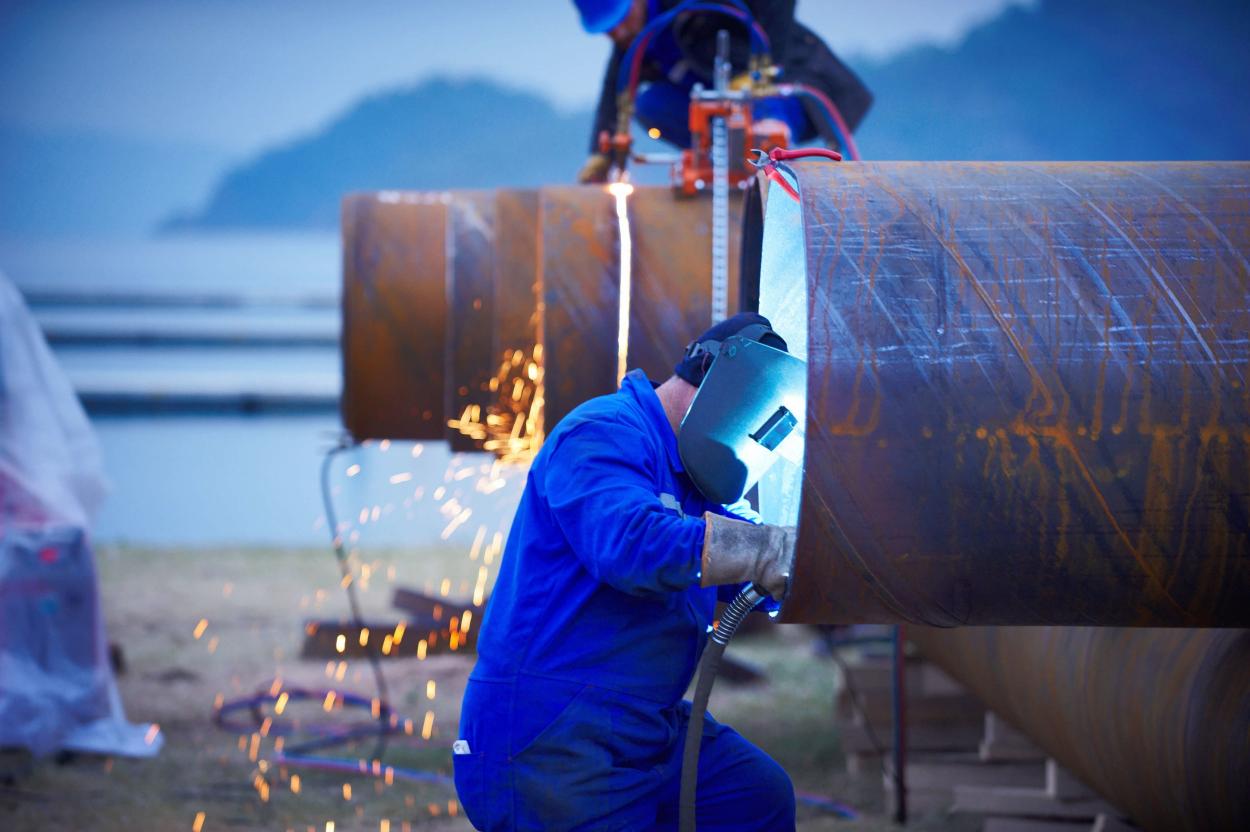Exploring the Strength: DSAW Pipes in Industrial Infrastructure
DSAW pipes, short for Double Submerged Arc Welded pipes, stand as essential elements within industrial infrastructure, celebrated for their robustness and adaptability. Serving as the backbone of critical sectors such as oil exploration, chemical processing, and construction, these pipes are indispensable for fluid transportation and structural integrity. Among the leading entities in this realm is Cangzhou Shenlong, established in 1992, boasting a sprawling production facility spanning 60,000 square meters in Cangzhou, Hebei. With a workforce exceeding 200, including 30 specialized inspectors, the company annually produces around 150,000 tons of steel pipes and 40,000 tons of pipe fittings. Their unwavering dedication to quality and precision has garnered them global acclaim, with exports reaching regions spanning the Middle East, Europe, Africa, and the Americas. This overview lays the groundwork for an exploration into the pivotal role of DSAW pipes and industrial infrastructure in propelling global development forward.

Understanding DSAW Pipes
Definition and Manufacturing Process
DSAW (Double Submerged Arc Welded) Pipes are manufactured using a welding process where the welding arc is submerged in flux while the welding takes place. This creates a high-quality, uniform weld with excellent strength and integrity. The process involves forming the pipe from a steel plate, then welding the edges together to form a seam. After welding, the pipe undergoes various quality checks and treatments to ensure its reliability and durability.
Characteristics and Properties
DSAW pipes possess several notable characteristics and properties. They exhibit high strength, making them suitable for high-pressure applications in industries such as oil and gas. Additionally, they offer excellent resistance to corrosion and abrasion, prolonging their lifespan in harsh environments. Their uniformity and consistency ensure reliable performance, while their versatility allows for various customization options to meet specific project requirements.
Advantages Over Other Pipe Types
Compared to other pipe types like seamless and ERW (Electric Resistance Welded) pipes, DSAW pipes offer distinct advantages. Their superior strength and integrity make them ideal for demanding applications where safety and reliability are paramount. Additionally, their larger diameter capabilities and cost-effectiveness make them a preferred choice for projects requiring extensive piping systems.
Role of DSAW Pipes in Industrial Infrastructure
Applications in Various Industries
DSAW pipes find widespread applications across various industries, including oil and gas, petrochemicals, water treatment, construction, and infrastructure development. In the oil and gas sector, they are used for transporting crude oil, natural gas, and refined products over long distances. In petrochemical plants, they facilitate the flow of chemicals and gases essential for manufacturing processes. Moreover, they are integral to water distribution systems, sewage treatment plants, and structural projects such as bridges and tunnels.
Importance in Infrastructure Development
The use of DSAW pipes is instrumental in infrastructure development projects, contributing to the expansion and modernization of vital transportation, energy, and water networks. They serve as the backbone of pipeline systems, providing essential connectivity for resource transportation and distribution. Furthermore, their use in structural applications ensures the stability and longevity of critical infrastructure components, bolstering societal resilience and progress.
Contribution to Economic Growth
The widespread adoption of DSAW pipes stimulates economic growth by fostering industrial development, job creation, and infrastructure expansion. Their production and utilization generate revenue streams for manufacturers, suppliers, and service providers along the supply chain. Moreover, the efficient transportation of resources facilitated by DSAW pipelines reduces operational costs and enhances productivity in various sectors, driving overall economic prosperity.
Strengths of DSAW Pipes
Mechanical Strength
DSAW pipes exhibit exceptional mechanical strength, enabling them to withstand high pressure, stress, and external forces. This strength makes them well-suited for applications requiring reliability and safety, such as in oil and gas transmission pipelines and structural projects.
Resistance to Corrosion and Abrasion
One of the key strengths of DSAW pipes is their resistance to corrosion and abrasion. The welding process and quality coatings applied to the pipes protect them from corrosive elements, extending their lifespan and reducing maintenance requirements. This resistance is particularly advantageous in environments prone to corrosion, such as marine and industrial settings
Longevity and Durability
DSAW pipes are known for their longevity and durability, offering a service life of several decades under proper maintenance and operating conditions. Their robust construction and resistance to wear ensure reliable performance over extended periods, minimizing the need for frequent replacements and repairs.
Cost-Effectiveness
Despite their superior quality and performance, DSAW pipes remain cost-effective compared to alternative pipe types. Their efficient manufacturing process, coupled with their long lifespan and low maintenance requirements, results in lower overall lifecycle costs. This cost-effectiveness makes them an attractive choice for large-scale projects and budget-conscious industries.
Challenges and Considerations
Environmental Concerns and Regulations
As the demand for industrial infrastructure continues to grow, environmental concerns regarding the manufacturing and usage of DSAW pipes have become increasingly prominent. Regulations governing emissions, waste disposal, and environmental impact assessments pose challenges for manufacturers and users alike. Implementing sustainable practices and complying with stringent regulations are imperative to mitigate environmental risks and ensure the long-term sustainability of DSAW pipe operations.
Maintenance and Inspection Requirements
Maintaining the integrity and reliability of DSAW pipes necessitates stringent maintenance and inspection protocols. Cangzhou Shenlong, for instance, adheres to rigorous inspection standards, conducting 100% inspection across nine critical parameters. These include ultrasonic and X-ray inspections of the plate and welded seams, hydraulic and final ultrasonic testing post-expansion, and comprehensive visual inspections. Such meticulous attention to detail is essential to detect and address potential defects or weaknesses, ensuring optimal performance and safety throughout the pipe's lifecycle.
Potential Limitations and Risks
Despite their numerous advantages, DSAW pipes are not without limitations and inherent risks. Factors such as welding defects, material degradation, and external environmental factors can compromise the integrity of the pipes, leading to leaks, failures, and safety hazards. Additionally, fluctuations in raw material prices and market demand pose economic risks for manufacturers and consumers. Addressing these challenges requires continuous innovation, robust risk management strategies, and adherence to industry best practices.
Future Outlook
Innovations in DSAW Pipe Technology
The future of DSAW pipe technology holds promising innovations aimed at enhancing performance, efficiency, and sustainability. Advancements in welding techniques, material science, and coatings technology are expected to improve the strength, corrosion resistance, and lifespan of DSAW pipes. Additionally, developments in automation and digitalization will streamline manufacturing processes, reduce costs, and improve quality control measures, further bolstering the competitiveness of DSAW pipe manufacturers.
Anticipated Trends in Industrial Infrastructure
In the realm of industrial infrastructure, DSAW pipes are poised to play a pivotal role in supporting emerging trends and developments. The increasing focus on renewable energy, urbanization, and smart infrastructure will drive demand for robust piping systems capable of handling diverse applications and evolving environmental requirements. Furthermore, investments in large-scale infrastructure projects, particularly in developing regions, will fuel the demand for DSAW pipes, creating opportunities for expansion and market growth.
Opportunities for Further Research and Development
The evolving landscape of industrial infrastructure presents myriad opportunities for further research and development in DSAW pipe technology. Areas of focus may include enhancing the recyclability and sustainability of materials used in pipe manufacturing, optimizing coating and corrosion protection strategies, and integrating digital solutions for predictive maintenance and asset management. Collaborative efforts between industry stakeholders, research institutions, and regulatory bodies will be instrumental in driving innovation and addressing emerging challenges in the DSAW pipe sector.
In Closing
The enduring strength and versatility of DSAW pipes represent a cornerstone of industrial infrastructure, underpinning essential sectors and enabling global development. With their robust construction, resistance to corrosion, and widespread applications, DSAW pipes exemplify reliability and innovation in engineering. As industries continue to evolve and expand, the role of DSAW pipes in facilitating fluid transportation, structural stability, and economic growth remains indispensable. Through ongoing advancements and strategic investments, the future of DSAW pipes promises to further elevate industrial infrastructure, driving progress and prosperity on a global scale.






